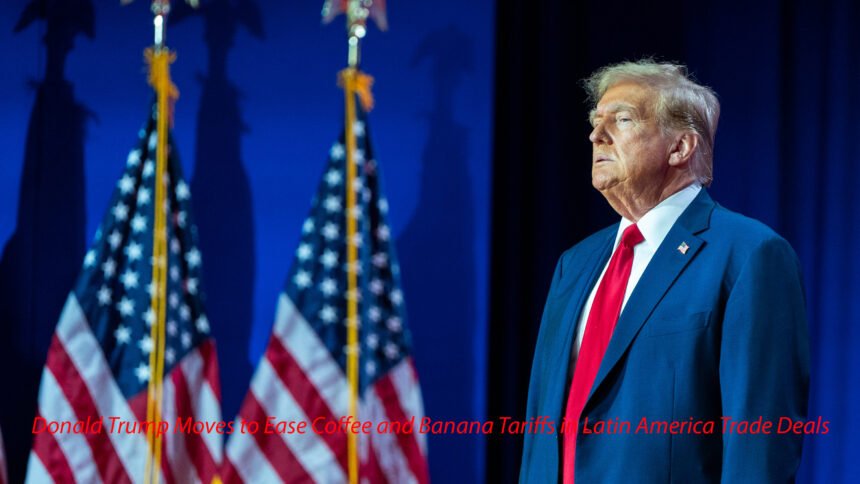President Donald Trump has announced that tariffs on Latin American imports such as coffee and bananas will be eased under new trade framework agreements with four countries. These deals aim to boost trade, reduce consumer costs, and reshape how the United States engages with its regional partners.
New Trade Frameworks with Four Nations
The US has reached preliminary trade frameworks with Argentina, Ecuador, Guatemala, and El Salvador. These agreements include provisions to remove tariffs on goods that the US doesn’t sufficiently produce domestically, including coffee and bananas. The frameworks are expected to be signed within weeks and will also target non-tariff barriers and digital services tax reforms.
Trump cited the need to ease cost-of-living pressures for American households as one of the chief reasons behind this move. He also underscored the broader goal of opening foreign markets for US firms while deepening economic ties with Latin America.
Impact on Coffee and Banana Imports
By targeting items like coffee and bananas, the administration hopes to deliver immediate relief in grocery prices. Treasury Secretary Scott Bessent confirmed that substantial announcements would follow soon to lower prices on these consumer staples. The expectation is that retailers will pass on savings from tariff reductions to American shoppers.
While the precise timing and magnitude of price drops remain uncertain, the message is clear: the administration prioritizes affordability. For exporters in the partner countries, the deals signal new opportunities for market access and growth in their agricultural sectors.
Latin American Partners Welcome the Change
Officials in the participating countries praised the frameworks as historic. For example, Ecuador, a major banana and coffee exporter, welcomed potential tariff relief as a boost for its export sector. Guatemala noted that a large portion of its exports could become tariff-free under the new agreement.
These deals also strengthen diplomatic alignment between the US and its Latin American neighbors. They shift focus away from punitive tariffs toward cooperative trade policy, offering a fresh tone in regional economic relations.
Challenges and Skepticism
Despite the encouraging headlines, challenges remain. Many tariffs will stay in place for most goods, and the relief covers only select imports. Some critics argue that the actions may be too limited to produce meaningful price reductions for consumers. Concerns exist that logistic costs, global supply chain disruptions, and domestic retail mark-ups may blunt the intended impact.
There is also political concern, particularly among the US agricultural and manufacturing sectors, about whether preferential treatment for Latin American imports could create competitive pressure. Trade analysts caution that the real test will be whether the agreed measures result in actual price declines and expanded market access.
Broader Economic and Political Implications
This tariff relief initiative represents a notable shift in Donald Trump trade policy moving from confrontation toward selective engagement. Historically, his administration has focused on imposing tariffs and reciprocation. The new approach signals a dual strategy: maintain strong levers in trade while offering relief on specific consumer goods.
If successful, these frameworks could set a template for future deals with other regions. For the US, they offer a potential political win by addressing affordability concerns among voters. For partner countries, they promise export growth and deeper integration into global supply chains.
Conclusion
President Donald Trump decision to ease tariffs on coffee and bananas from select Latin American countries stands as a strategic move with immediate and long-term implications. On one hand, it addresses cost-of-living pressures for American consumers. On the other hand, it marks a new chapter in trade diplomacy with Latin America.
Whether the deals deliver significant savings at checkout and stronger economic ties remains to be seen. The frameworks set the stage, but effective implementation and shared commitment will determine results. If everyone follows through, the move could reshape regional trade dynamics and provide a model of targeted tariff relief in an era of global economic uncertainty.












